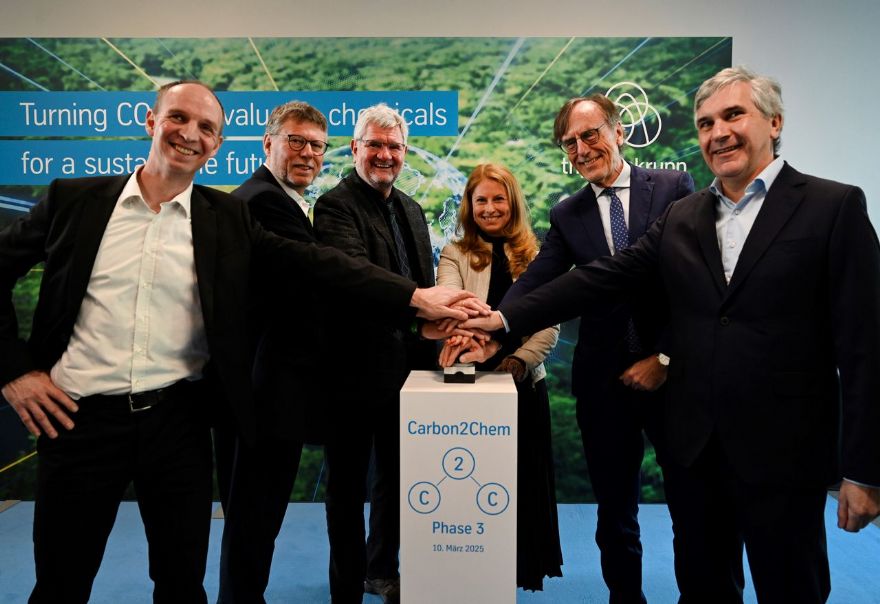 Carbon2Chem
Carbon2Chem — a collaborative project coordinated by
ThyssenKrupp in close cooperation with the Max Planck Institute for Chemical Energy Conversion (MPI CEC) and the Fraunhofer Institute for Environmental, Safety and Energy Technology UMSICHT — is now entering its third phase. The research was started in 2016 to resolve how blast furnace gases emitted during steel production could be converted into valuable chemical starting products used for fuels, plastics and fertilisers, among other things.
In the years since, the research — being funded by the German Ministry of Education and Research — has made some ‘groundbreaking’ findings that will make ‘a strong contribution to the climate-friendly transformation of industry’. The third phase of the project will focus on the application-based verification of the solutions developed during the work to date, the adaptation of gases used in direct reduction in the steel sector, and the comprehensive study of methanol and hydrogen. Karl Eugen Huthmacher, the state secretary in the Education and Research Ministry, has buoyed the project with a 50 million euro grant that runs through to 2028.
During the second phase of the project, researchers successfully demonstrated that it is not only technically possible to produce methanol at various CO/CO
2 ratios but also that hydrogen storage in large caverns is the best way for the system itself, particularly for locations in the northern Ruhr region — and that additional carbon sources like lime reduction, thermal waste treatment, and direct reduction were suitable — in principle — for methanol production.
During a ceremony at which the grant documents were presented, Carolin Nadilo — CFO of ThyssenKrupp Decarbon Technologies — said: “The results of the second phase are impressive and demonstrate the tremendous potential of Carbon2Chem for industrial decarbonisation. This project underscores our commitment to reducing industrial CO
2 emissions around the world with the help of innovative technologies and accelerating the ‘green’ transformation.”
Dr Huthmacher concluded: “Carbon2Chem impressively demonstrates how research is providing a concrete contribution to making industrial processes more climate friendly. The progress made so far is already bringing us considerably closer to a CO
2 circular economy — especially in steel production, chemicals and energy.”